Cloud Billing Software
myBillBook Cloud Billing Software is a highly efficient yet affordable billing solution for your ever-growing small business needs. By offering unparalleled scalability, flexibility, and security, our cloud-based billing software is a great alternative to traditional on-premise billing systems.
- Highly Affordable
- Accessible from anywhere
- Zero set-up and maintenance costs
- 99% Uptime
- 100% Data Encryption
- Cost Saving
- Plans start from Rs.399/year
Ready to purchase?
Get up to 35% off on multi-year plans.Talk to Sales




Features of myBillBook Cloud-Based Billing Software
A cost-effective and scalable operating structure is more important in today’s corporate environment. Flexible billing and competitiveness are crucial for changing market conditions.
Cloud billing is a term that refers to the integration of cloud computing with electronic billing. This on-premise billing system is widening the boundaries of many businesses. Cloud billing is transforming the computer system, allowing for billing flexibility and easy access to data. This is an excellent method to organise items, services, and subscriptions.
The cloud billing software provides powerful billing capabilities, minimising the potential for IT support and the difficulty of integrating point tools.
The Cloud Billing System automates rating, service billing, consumption invoicing, and third-party settlement. In addition, service providers and businesses can integrate cloud billing software with existing accounting, reconciliation, and financial systems.
Highly Accessible
Cloud-based software is available over the internet, eliminating the need to go to your office for each task. In addition, it’s possible to access your company’s financial data from anywhere with the use of cloud billing software.
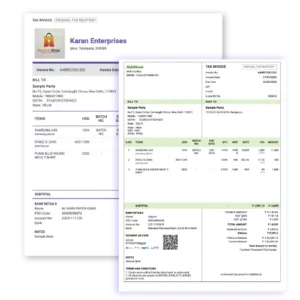
Highly Accessible
Cloud-based software is available over the internet, eliminating the need to go to your office for each task. In addition, it’s possible to access your company’s financial data from anywhere with the use of cloud billing software.

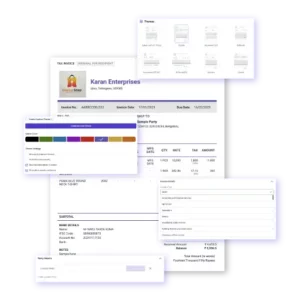
Speed of Operation
Public cloud providers use multi-tenant architectures to handle a more significant number of customers simultaneously.
Read more
The workloads of clients are separated from the operating systems that serve them on the same system. As a result, security and speed are becoming increasingly important for cloud providers.
Speed of Operation
Public cloud providers use multi-tenant architectures to handle a more significant number of customers simultaneously.
Read more
The workloads of clients are separated from the operating systems that serve them on the same system. As a result, security and speed are becoming increasingly important for cloud providers.

Scalability
Resource pooling allows cloud users and service providers to scale computation, storage, connectivity, and other assets as needed.
Read more
Resource pooling allows cloud users and service providers to scale computation, storage, connectivity, and other assets as needed.
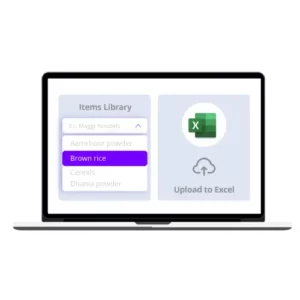
Scalability
Resource pooling allows cloud users and service providers to scale computation, storage, connectivity, and other assets as needed.
Read more
Resource pooling allows cloud users and service providers to scale computation, storage, connectivity, and other assets as needed.

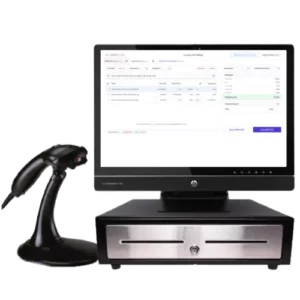
Regular Billing & Automatic Payments
One of the features of using cloud billing software is its well-proven billing system that can manage many different billing features, such as prorated charges, rolled up billing, and early termination fees.
Read more
It offers a specific set of tools for automating recurring payments, featuring credit/debit card transactions, PayPal, and direct debit, as well as a file-based interface for submitting offline payment notifications.
Regular Billing & Automatic Payments
One of the features of using cloud billing software is its well-proven billing system that can manage many different billing features, such as prorated charges, rolled up billing, and early termination fees.
Read more
It offers a specific set of tools for automating recurring payments, featuring credit/debit card transactions, PayPal, and direct debit, as well as a file-based interface for submitting offline payment notifications.

Business Analytics
Cloud billing incorporates a robust operational dashboard that outlines essential performance measures and provides direct access to a set of real-time analytical data.
Read more
It provides reports on various business processes allowing business owners to get insights about the key parameters using which they can make right decisions.
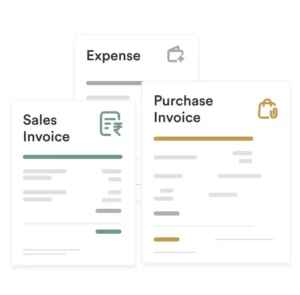
Business Analytics
Cloud billing incorporates a robust operational dashboard that outlines essential performance measures and provides direct access to a set of real-time analytical data.
Read more
It provides reports on various business processes allowing business owners to get insights about the key parameters using which they can make right decisions.

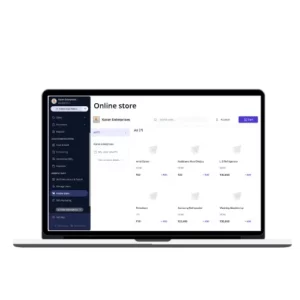
Maintain communication
Maintaining good relationships with suppliers, distributors, and other coworkers is vital. With cloud billing software, you can locate invoices, bills, and payments.
Read more
Additionally, cloud-based accounting solutions enable business owners to engage with their accountants frequently to ensure financial data is accurate, which simplifies and streamlines tax filing.
Maintain communication
Maintaining good relationships with suppliers, distributors, and other coworkers is vital. With cloud billing software, you can locate invoices, bills, and payments.
Read more
Additionally, cloud-based accounting solutions enable business owners to engage with their accountants frequently to ensure financial data is accurate, which simplifies and streamlines tax filing.

Benefits of myBillBook Cloud Billing Software

Saves Time
The majority of cloud-based accounting solutions enable you to develop time-saving automated workflows.
Read more
Your vendor information will be entered into the database, and a workflow will be set up to pay your vendor on the specified date each month. Once your clients’ information has been entered into the system, you can also set up recurring invoices for them to be sent automatically. That is how automation benefits you.
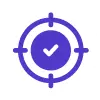
Real-time Access
You can easily track inventory using in-built inventory management software, orders, and expenditures with cloud-based accounting software that connects to your business’s bank account(s).
Read more
As long as you maintain everything regularly, you’ll always be accessing real-time data.
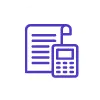
Advanced security
You may be concerned that some cloud service providers are storing your data, but the cloud is one of the safest locations to store data. When using cloud accounting no one else can access your files unless they are logged into your cloud account as well.
Read more
Besides that, data stored in cloud billing software is protected from natural disasters. You can even share the information with others by inviting them to view it with limited access. Furthermore, your data is safe and secure when using a cloud-based accounting service because the service provider is constantly adding new security features.
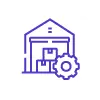
Automatic Software Updates and Upgrades
Cloud billing software automatically saves the latest versions of your accounting document, ensuring that you never have an outdated record.
Read more
In addition, updates and upgrades are performed in the background, so you won’t have to worry about them interfering with your work. Additionally, cloud functionality adapts automatically to your device’s functionality, saving your team effort and allowing them to work on other projects instead of making changes.

Multi-user Collaboration
You have access to your cloud billing software and data at any time and from any location, using any device.
Read more
Additionally, several users can collaborate on your documents concurrently. Instead of using many computers, you need one computer with an internet connection for team collaboration now that the billing system is hosted in the cloud rather than on-premise.

Making Smarter Business Decisions
Cloud billing software enables you to have greater control over the data and resources while also providing an in-depth, real-time, and up-to-date overview of your business’s accounts.
Read more
Additionally, it provides scalability, allowing you to customize resources as your business grows.
You receive a consolidated performance report that you can convert to actionable insights to help you make better decisions and develop new strategies for your Bootstrap Enterprise startup business.
₹217
Per month. Billed annually
Diamond Plan
✅ Create unlimited invoices
✅ Add up to 1 business + 1 user
✅ Inventory management
✅ App + Web support
✅ Priority customer support
✅ GSTR reports in JSON format Popular
₹250
Per month. Billed annually
Platinum Plan
Everything on Diamond Plan +
✅ Add up to 2 business + 2 user
✅ 50 e-Way bills/year
✅ Staff attendance + payroll
✅ Godown management
✅ Whatsapp and SMS marketing Popular
₹417
Per month. Billed annually
Enterprise Plan
Everything on Platinum Plan +
✅ Custom invoice themes
✅ Create your online store
✅ Generate and print barcode
✅ POS billing on desktop app
✅ Unlimited e-Invoices & e-Way bills Popular
₹217
Per month. Billed annually
Diamond Plan
✅ Create unlimited invoices
✅ Add up to 1 business + 1 user
✅ Inventory management
✅ App + Web support
✅ Priority customer support
✅ GSTR reports in JSON format Popular
₹250
Per month. Billed annually
Platinum Plan
Everything on Diamond Plan +
✅ Add up to 2 business + 2 user
✅ 50 e-Way bills/year
✅ Staff attendance + payroll
✅ Godown management
✅ Whatsapp and SMS marketing Popular
₹417
Per month. Billed annually
Enterprise Plan
Everything on Platinum Plan +
✅ Custom invoice themes
✅ Create your online store
✅ Generate and print barcode
✅ POS billing on desktop app
✅ Unlimited e-Invoices & e-Way bills Popular
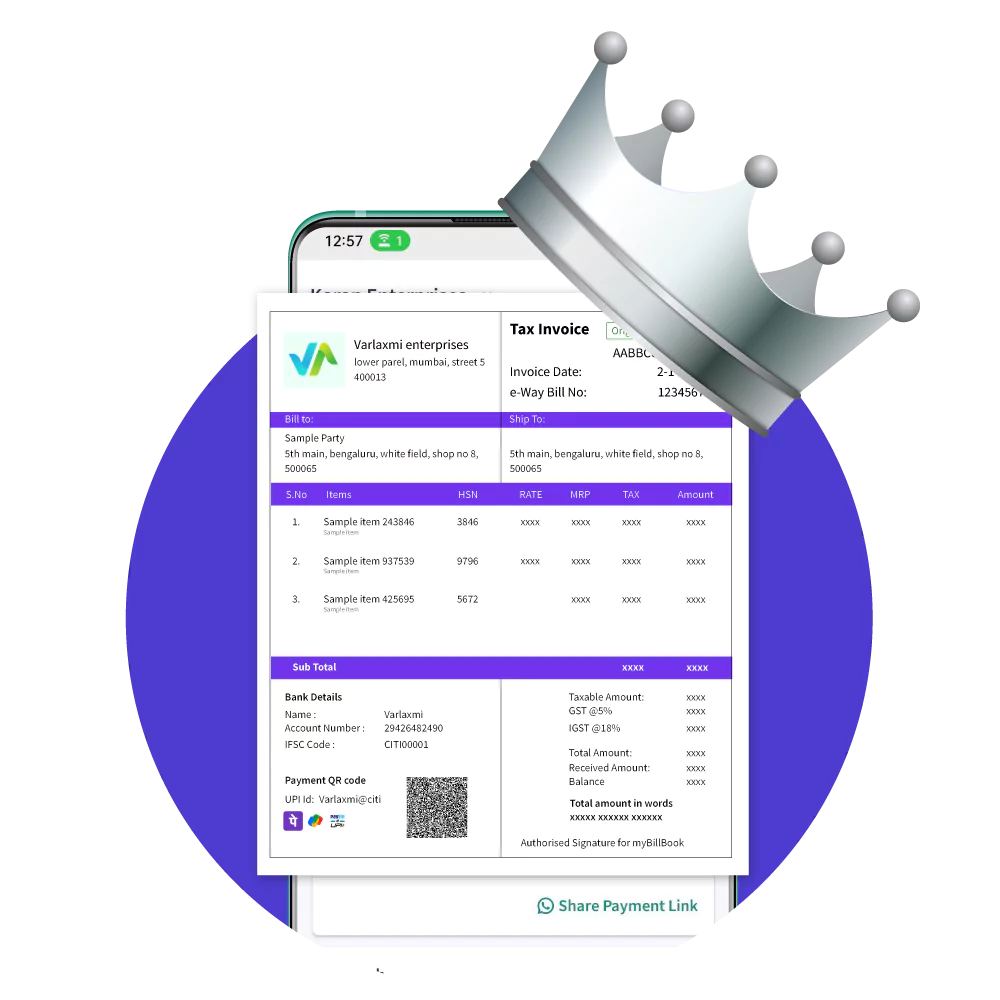
₹399 per year
Silver Plan for Android App
✅ For 1 device, 1 business and 1 user

₹399 per year
Silver Plan for Android App
✅ For 1 device, 1 business and 1 user
Try India’s easiest billing platform
Ready to purchase? Get up to 35% off on multi-year plans. Talk to Sales
Try India’s easiest billing platform
Ready to purchase? Get up to 35% off on multi-year plans. Talk to Sales

Hitesh Patel – FMCG Distributor – Mumbai
“myBillBook is easy to use and covers every aspect of running my business like generating invoices, inventory management, GST compliance and much more”

R V Shetty – Electrical Retailer – Vijayawada
“I found myBillBook a good invoicing software for my small business because it didn’t need any training and it has excellent customer support”
FAQs – Cloud Billing Software
What is cloud billing software?
Cloud billing software or cloud-based billing software is a software solution that allows users to manage their billing operations in a cloud-based environment. You don't have to purchase on-premise software or a licence to use the billing software. You simply need to login to the account and conduct your billing and other accounting operations.
Just like the on-premise billing software, cloud invoicing software allows you to create invoices, accept payments, manage inventory, send quotes, track payments, and conduct all other billing activities. However, cloud-based billing software is typically subscription-based, and depending\
on the service provider, you will be billed either monthly or annually.
What are the benefits of cloud billing software?
The advantages of cloud billing software include -
- Accessible from anywhere in the world. All you need is an active internet connection and a compatible device.
- Highly scalable to accommodate current and future requirements. No significant infrastructure investments are required during business expansion.
- Significant cost savings with zero infrastructure, set-up, or maintenance costs. Flexible and customisable pricing options to suit your business model.
- Advanced analytical capabilities that provide insights into your business billing trends, customer behaviour, best-selling and least-selling products, etc, that help businesses make data-driven decisions.
What is the best cloud billing software in India?
With the increasing popularity of cloud billing systems, many service providers offer cloud billing software in India. myBillBook cloud billing software is one of the cloud billing platforms in Indiathat caters to more than 1 Crore small and mid-sized businesses in the country. By offering safe and sece operations, the billing platform has gained popularity among different industries.
Some of the features that made myBillBook the best cloud billing software provider include professional invoice generation, custom invoices, inventory management, POS billing, e-invoicing, e-way billing, etc.
Is myBillBook cloud billing software free?
You can try myBillBook cloud billing software for free for the first 14 days. During the 14-day free trial period, you will have access to most of the features, analysing which you can make the purchase decision. You can download myBillBook cloud billing app for free on both Android and iOS platforms.
What is the cost of cloud billing software?
Different cloud billing software are available for different price based on the features they offer. With myBillBook, the pricing starts at as low as INR 399 per month.
Know more about Billing & Accounting Software for Small Businesses
- Restaurant Billing Software
- Billing Software for Distributors
- Jewellery Billing Software
- Billing Software for Grocery Store
- Legal Billing Software
- Hotel Billing Software
- Kirana Billing Software
- Supermarket Pos Software
- Pharmacy Billing Software
- Supermarket Billing Software
- Transportation Billing and Accounting Software
- 7 Tips for Choosing the Best Billing Software
- Mobile Shop Billing Software
- Restaurant POS Software
- Store Inventory Management Software
- Society Billing and Accounting Software
- Medical Billing Software
- Salon Billing Software
- Hospital Billing Software
- Textile Billing Software
- Cable TV Billing Software
- Billing Software for Bakery Shop
- Billing Software for Mac
- Accounting Software for Mac
- Retail Inventory Management Software
- ERP Accounting Software
- Real Estate Billing and Accounting Software
- Hospital Accounting System
- School Billing Software
- Department Store Billing Software
- Ecommerce Inventory Management Software
- Travel Agency Accounting Software
- Restaurant Inventory Management Software
- Construction Accounting Software
- How to Create Custom Invoice in myBillBook
- 31 Hacks to Streamline Your Billing Process
